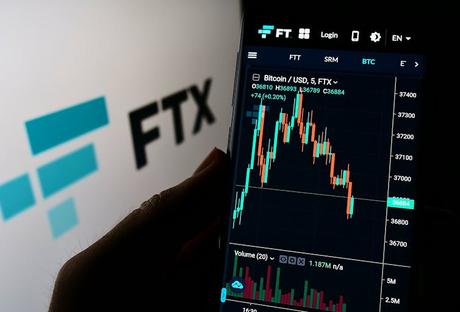Collapsed FTX exchange plans to repay investors - this could be a fresh start for crypto
 FTX investors can now expect to get their funds back. T. Schneider/Shutterstock
FTX investors can now expect to get their funds back. T. Schneider/Shutterstock
By Andrew Urquhart, University of Reading and Lambis Dionysopoulos, University of Reading
Collapsed cryptocurrency exchange FTX recently announced that the majority of creditors who lost money in its bankruptcy scandal will be repaid their missing funds. This has become possible now - 18 months after the business filed for bankruptcy - because FTX and sister company Alameda Research have raised cash by selling off a number of assets.
Not everyone's happy, however. The price of bitcoin has climbed more than 250% since the November 2022 collapse, yet the missing FTX assets will be valued at the prices from that time, leaving investors seriously out of pocket compared to the gains they could reasonably have expected.
So how did it come to this? FTX was co-founded in 2019 by Sam Bankman-Fried (also known as SBF), who was once seen as the golden boy of the cryptocurrency industry. As the CEO of FTX, he grew the company into one of the largest cryptocurrency exchanges in the world with more than 1 million users.
It had revenues over US$1 billion (£789 million) and endorsements from major celebrities like American football star Tom Brady and professional basketball player Stephen Curry, while also hosting a conference in the Bahamas in 2022 with Tony Blair and Bill Clinton as keynote speakers.
SBF's empire included the FTX exchange business, as well as Alameda Research, a trading firm that was supposed to be separate from FTX. But in late 2022, industry news site CoinDesk reported that Alameda's balance sheet was dominated by FTT - the cryptocurrency issued by FTX.
While there was nothing illegal about these holdings - since the cryptocurrency industry is mainly unregulated - the report highlighted Alameda's heavy reliance on a coin invented by its sister company. This discovery led to liquidity concerns about the entire company.
Then FTX's competitor Binance said it would sell all FTT from its books and, unsurprisingly, customers got worried FTX might not be able to return their cryptocurrency to them. This triggered a surge of more than US$6 billion in withdrawals from FTX in just three days, leading to widespread panic. Cryptocurrency prices fell, trading volume fell and the market faced a huge downturn. A lot of FTX's customers could not access their funds or withdraw their assets from the exchange.
Within a month, SBF had been charged with a variety of fraud and money-laundering offences. In March this year, after a long trial, he was sentenced to 25 years in prison for masterminding the fraud that led to the exchange's collapse.
What about FTX customers?
FTX now says that 98% of its creditors, including individual investors who had US$50,000 or less with FTX, will receive the funds they lost. Payments will be made in cash within 60 days of a reorganisation plan going into effect. However, this plan still needs to be approved by a US bankruptcy court and by creditors.
The assets FTX and Alameda Research have sold to make this offer possible include shares in Anthropic, the Amazon-backed artificial intelligence (AI) startup now valued at nearly US$20 billion. FTX said it had sold shares in Anthropic worth US$900 million this year.
But some investors are angry at their cryptocurrency assets being valued at November 2022 prices as part of the bankruptcy. Since that date, the price of bitcoin has soared and the market is on an upward trend.
FTX has acknowledged the valuation issues but argued that this is because it held only 0.1% of the bitcoin and 1.2% of ethereum (another cryptocurrency) that their customers believed it held - a legacy of SBF's mismanagement and dishonesty. As such, FTX had not benefited from the phenomenal growth in the market.
The FTX scandal was allowed to happen because its young and charismatic founder exploited the flashy new cryptocurrency industry to mask what was essentially old-fashioned embezzlement, in which he stole billions of dollars from investors. But along the way, he established a cult of personality, garnered support from large institutional investors, and amassed political and lobbying influence. All while dismissing his critics as unsophisticated non-believers.
It's not the only time a charismatic crypto-founder had been involved in controversy. Do Kwon, designer of TerraUSD and Luna, has been found liable for misleading investors about the stability of his stablecoin, while former Binance CEO Changpeng Zhao (known as CZ) recently pleaded guilty to charges of enabling money-laundering at his exchange.
Many bad actors have recently left the space though, and this can be seen as an opportunity to start anew. But after these scandals, the polish has come off the cryptocurrency industry. Now it must compete for talent and attention on its merits, in an era where the public's interest is shifting to investing in new players like AI applications.
However, the cryptocurrency space is still very attractive to investors and innovators. Spot ETFs (exchange-traded funds) are a regulated and accessible way for people to tap into the value of bitcoin without actually holding the currency. In January, 11 ETFs were approved, with more than US$12 billion being deposited in the first quarter alone. And there has also been a huge surge in AI coins, which are seen as a way for investors to take a share in the AI boom.
So, while the FTX and other scandals were bruising, the cryptocurrency market has always shown that no matter what is going on in the media, the market keeps evolving and offering fresh and innovative opportunities to participants.

Andrew Urquhart, Professor of Finance & Financial Technology, University of Reading and Lambis Dionysopoulos, PhD candidate in FinTech, University of Reading
This article is republished from The Conversation under a Creative Commons license. Read the original article.
This post was originally published on this site

